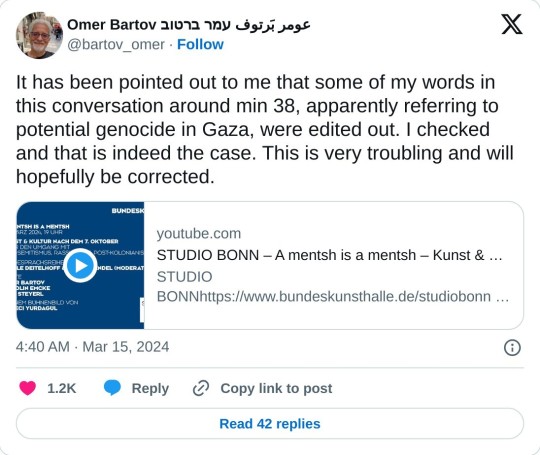#Omer Bartov
Text
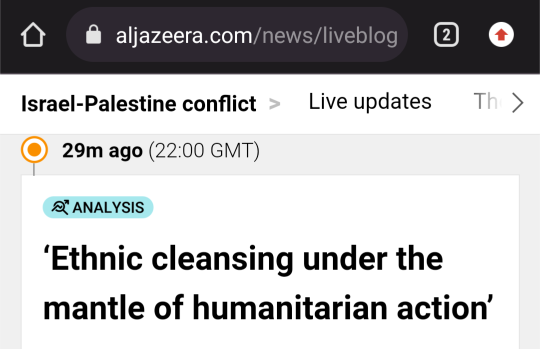
"Speaking to Al Jazeera, Omer Bartov, a professor of Holocaust and Genocide Studies at Brown University, says Israeli officials, both in Netanyahu’s coalition and in the opposition, have been speaking more openly about making Gaza unlivable for Palestinians.
“There have been ongoing statements in recent days … which seem to indicate a particular plan the Israeli government seems to want to implement, which is not only to create unbearable conditions for the population of Gaza, but actually to speak about removing the population,” he said.
“Or as one minister [far-right finance minister] Smotrich said, to encourage them to leave Gaza either to the Sinai Peninsula or to other countries that would welcome them,” Bartov said.
“Or that Israel would rule that area and as this particular minister said, there should be discussions about settling the Gaza Strip,” he said, adding if the current trajectory continues, the world is witnessing an operation of “ethnic cleansing under the mantle of humanitarian action”.
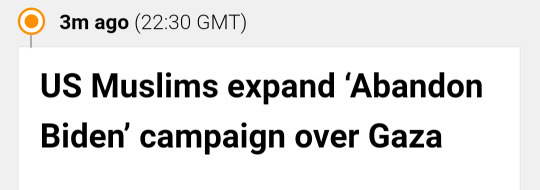
American Muslim leaders carried on a campaign launched earlier this month against President Joe Biden over his handling of the Gaza conflict.
#AbandonBiden campaign was first launched by Muslim leaders from Michigan, Minnesota, Arizona, Wisconsin, Florida, Georgia, Nevada and Pennsylvania.
Saturday’s plan to actively campaign against Biden in all 50 US states was announced in Chicago, Illinois at the end of a national convention organised by the Muslim American Society and Islamic Circle of North America.
The leaders say they intend to guarantee Biden’s loss in the upcoming 2024 election over his refusal to call for a ceasefire in Gaza, where Israeli attacks have killed more than 21,000 people, mostly children and women.
“The president betrayed us because he violated the value of dignity and life. What’s the point of voting for you when you deny 2.2 million [in Gaza] people water?” said Hassan Abdel Salam, a spokesperson for the campaign.
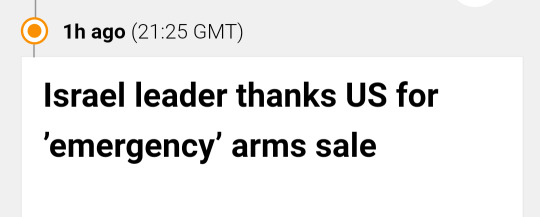
" Prime Minister Netanyahu thanked the Biden administration for its continued backing, including approval for a new emergency weapons sale, the second this month.
Secretary of State Antony Blinken made a similar decision on December 9 to approve the sale to Israel of nearly 14,000 rounds of tank ammunition worth more than $106m.
Some Democratic lawmakers have spoken of making a proposed $14.3bn in American military assistance to Israel contingent on concrete steps by Netanyahu’s government to reduce civilian casualties in Gaza.
Netanyahu says Israel needs more time in Gaza.
“As the chief of staff said this week, the war will continue many more months. My policy is clear. We will continue to fight until we have achieved all the objectives of the war, first and foremost the annihilation of Hamas and the release of all the hostages.”
Keep protesting and boycotting and calling your reps and blocking ships and railroads
🕊️🇵🇸🕊️
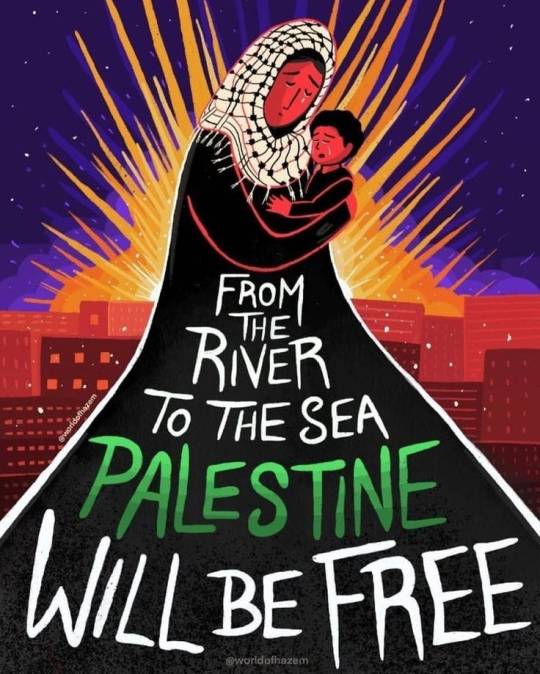
artist
#Palestine#gaza#from the river to the sea palestine will be free#Israel#usa#voting#biden#biden 2024#abandonbiden#omer bartov#Chicago#Muslim American Society and Islamic Circle of North America#Hassan Abdel Salam#Michigan#arizona#florida#wisconsin#Georgia#nevada#Pennsylvania#vote#vote blue#vote blue no matter who#vbnmw#democrats#solidarity#intersectional activism#palestine#claudia de la cruz#claudia karina 2024
1K notes
·
View notes
Text

An Open Letter on the Misuse of Holocaust Memory, by Omer Bartov, Christopher R. Browning, Jane Caplan, Debórah Dwork, Michael Rothberg, et al., «The New York Review», November 20, 2023
«Appealing to the memory of the Holocaust obscures our understanding of the antisemitism Jews face today and dangerously misrepresents the causes of violence in Israel-Palestine.»
(Image: Berlin's Memorial to the Murdered Jews of Europe, August 28, 2015. Fotogoocom/Wikimedia Commons)
(Via: Laia Balcells)
#history#historiography#education#magazine#omer bartov#christopher r. browning#jane caplan#debórah dwork#michael rothberg#the new york review of books#2020s
31 notes
·
View notes
Text
Israeli Holocaust historian Omer Bartov:
it is important to put the current events in the correct historical context and to diagnose as best we can their deeper causes. A misdiagnosis of such causes, or a denial of them altogether, will only make things worse. It would appear that precisely because of this misdiagnosis or denial, Israel is currently balanced over a precipice, as an increasing number of well-informed commentators are warning (see for instance Thomas Friedman’s op-ed in the NYT). The potential for a regional, if not world-wide conflict, is growing. Making things worse is Israel’s forced displacement of over a million civilians—the majority of whom are Palestinian refugees of the 1948 Nakba and their descendants—from their homes in the northern part of Gaza to the southern part, even as the IDF is now reducing much of that northern part to rubble. By most accounts it has already killed ten times as many Palestinians, including numerous children (who make up 50% of the overall population there), as those murdered by Hamas. Most recently, displaced Gazans in the eastern part of the southern Strip have been ordered to move to its western part, adding even more to the congestion. This military policy is creating an untenable humanitarian crisis, which will only worsen over time. The population of Gaza has nowhere to go, and its infrastructure is being demolished.
In justifying these actions, Israeli leaders and generals have made terrifying pronouncements. On October 7, Prime Minister Benjamin Netanyahu said that Gazans would pay a “huge price” for the attack by Hamas, and that the IDF would turn parts of Gaza’s densely populated urban centers “into rubble.” On Oct. 28, he added, citing Deuteronomy, “You must remember what Amalek did to you.” As many Israelis know, in revenge for the attack by Amalek, the Bible calls to “kill alike men and women, infants and sucklings.” Israeli President Yitzhak Herzog condemned all Palestinians in Gaza: “It is an entire nation out there that is responsible. It is not true this rhetoric about civilians not being aware, not involved. It’s absolutely not true.” Israeli Minister of Energy and Infrastructure Israel Katz similarly stated: “No electrical switch will be turned on, no water hydrant will be opened and no fuel truck will enter, until the abductees return home.” Member of Knesset Ariel Kallner wrote on social media on October 7: “Right now, one goal: Nakba! A Nakba that will overshadow the Nakba of ‘48. Nakba in Gaza and Nakba to anyone who dares to join!” No one in the government denounced that statement. Instead, on November 11, security cabinet member and Agriculture Minister Avi Dichter reiterated: “We are now rolling out the Gaza Nakba.”
Israel’s defense minister, Yoav Gallant, stated on October 9, “we are fighting human animals and we will act accordingly,” a statement indicating a dehumanization of people that has genocidal echoes. He later announced that he had “removed every restriction” on Israeli forces, and that “Gaza won’t return to what it was before. We will eliminate everything.” On October 10, the head of the Israeli army’s Coordinator of Government Activities in the Territories (COGAT), Major General Ghassan Alian, addressed the population of Gaza in Arabic, stating: “Human animals must be treated as such. There will be no electricity and no water, there will only be destruction. You wanted hell, you will get hell.” The same day, Israeli army spokesperson Daniel Hagari announced that in the bombing campaign in Gaza, “the emphasis is on damage and not on accuracy.” Also on October 10, Major General Giora Eiland wrote in the mass circulation daily Yedioth Ahronoth: “The State of Israel has no choice but to turn Gaza into a place that is temporarily or permanently impossible to live in,” adding that “Creating a severe humanitarian crisis in Gaza is a necessary means to achieving the goal,” and that “Gaza will become a place where no human being can exist.”
Omer Bartov :: Co-Chair, Genocide, Holocaust and Disaster Studies, CGC; Author “Genocide, the Holocaust and Israel-Palestine: First-Person History in Times of Crisis”
#Omer Bartov#Holocaust and Disaster Studies#Israel-Palestine:First Person History in Times of Crisis#articles#Israel#Israel-Hamas war
13 notes
·
View notes
Text

Unlike the majority of Israelis, these young people [who had recently returned from reserve service] had seen the destruction of Gaza with their own eyes. It seemed to me that they had not only internalised a particular view that has become commonplace in Israel – namely, that the destruction of Gaza as such was a legitimate response to 7 October – but had also developed a way of thinking that I had observed many years ago when studying the conduct, worldview and self-perception of German army soldiers in the second world war. Having internalised certain views of the enemy – the Bolsheviks as Untermenschen; Hamas as human animals – and of the wider population as less than human and undeserving of rights, soldiers observing or perpetrating atrocities tend to ascribe them not to their own military, or to themselves, but to the enemy. (via As a former IDF soldier and historian of genocide, I was deeply disturbed by my recent visit to Israel | Israel | The Guardian)
As my research had shown, even before their conscription, young German men had internalised core elements of Nazi ideology, especially the view that the subhuman Slav masses, led by insidious Bolshevik Jews, were threatening Germany and the rest of the civilised world with destruction, and that therefore Germany had the right and duty to create for itself a “living space” in the east and to decimate or enslave that region’s population. This worldview was then further inculcated into the troops, so that by the time they marched into the Soviet Union they perceived their enemies through that prism. (...)
the utter inability of Israeli society today to feel any empathy for the population of Gaza. The majority, it seems, do not even want to know what is happening in Gaza, and this desire is reflected in TV coverage. (...)
The way people’s eyes glaze over whenever one mentions the suffering of Palestinian civilians, and the deaths of thousands of children and women and elderly people, is deeply unsettling. (...)
The impression that I got was consistent: we have no room in our hearts, we have no room in our thoughts, we do not want to speak about or to be shown what our own soldiers, our children or grandchildren, our brothers and sisters, are doing right now in Gaza. We must focus on ourselves, on our trauma, fear and anger. (...)
Many of my friends recognise the injustice of the occupation, and, as Smilansky said, profess a “love for humanity”. But at this moment, under these circumstances, this is not what they are focused on. Instead, they feel that in the struggle between justice and existence, existence must win out, and in the struggle between one just cause and another – that of the Israelis and that of the Palestinians – it is our own cause that must be triumphant, no matter the price. To those who doubt this stark choice, the Holocaust is presented as the alternative, however irrelevant it is to the current moment. (...)
Thousands of children were killed? It’s the enemy’s fault. Our own children were killed? That is certainly the enemy’s fault. If Hamas carry out a massacre in a kibbutz, they are Nazis. If we drop 2,000-pound bombs on refugee shelters and kill hundreds of civilians, it’s Hamas’s fault for hiding close to these shelters. After what they did to us, we have no choice but to root them out. After what we did to them, we can only imagine what they would do to us if we don’t destroy them. We simply have no choice. (via As a former IDF soldier and historian of genocide, I was deeply disturbed by my recent visit to Israel | Israel | The Guardian)
1 note
·
View note
Text
"During the few hopeful years of the Oslo peace process, people in Israel began speaking of making it into a “state of all its citizens”, Jews and Palestinians alike. The assassination of prime minister Rabin in 1995 put an end to that dream. Will it ever be possible for Israel to discard the violent, exclusionary, militant and increasingly racist aspects of its vision as it is embraced there now by so many of its Jewish citizens? Will it ever be able to reimagine itself as its founders had so eloquently envisioned it – as a nation based on freedom, justice and peace?"
While a long read, it's also a thoughtful one. I appreciate how the author noted the militarism which pervades Israeli youth including a time when he was talking to them at a university. How could the Israeli people learn to not turn to these perverse forces which lead to the bloodletting in Gaza? And how could there be peace?
#the guardian#omer bartov#israel#israel palestine conflict#israeli politics#peace now#war and peace#world politics#german history
1 note
·
View note
Text
GOP Attacks on Higher Learning: What’s Education for Anyway? And How about Religion?
Readings for the Third Sunday of Advent:Isaiah 61: 1-2A, 10-11; Luke 1: 46-48, 49-50, 53-54; 1 Thessalonians 5: 16-24; John 1: 6-8, 19-28.
Last week, Americans were treated to a high-level display of hypocrisy, double standards, and pure ignorance regarding higher learning. The spectacle occurred during a House Education Committee hearing about on-campus demonstrations supporting Palestinians in…
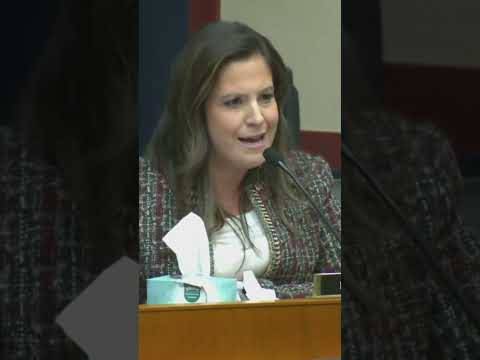
View On WordPress
#Anti-Semitism#Benjamin Netanyahu#Christianity#Claudine Gay#Elise Stefanik#Genocide Joe#God#Homiletic helps#Homilies#Jesus#Liz Magill#Omer Bartov#religion#Sally Kornbluth#Spirituality#Sunday Homilies#Third Sunday of Advent#Vladimir Putin
0 notes
Text
What was the connection to Ukraine
Omer Bartov is the Samuel Pisar Professor of Holocaust and Genocide Studies in the Department of History at Brown University in Rhode Island, a Historian, Speaker, Writer, and Author of several books.
Dr.Omer Bartov discusses his new book, “The Butterfly and The Axe”. Omer Bartov discusses the book cover, the significance of the title, his writing process, and why he wrote the book which is…

View On WordPress
#kickalzheimersassmovement#Anti Semitism#Betsy Wurzel#can a Holocaust happen again#Genocide Studies#Germany#Hilter#Holocaust#Jewish Community#Omer Bartov#Samuel Pisar Professor#The showers#Ukraine
0 notes
Text
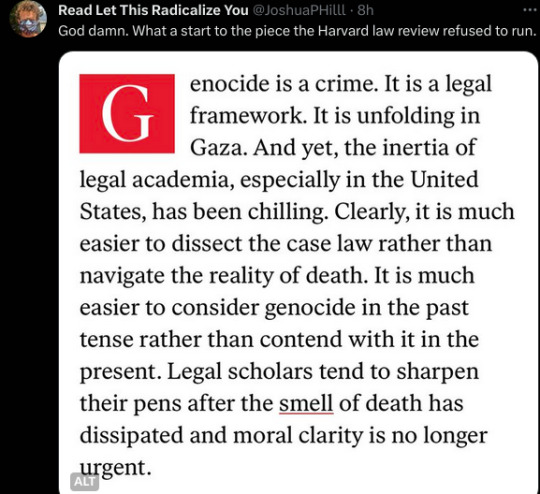
In a statement that was shared with The Nation, a group of 25 HLR editors expressed their concerns about the decision. “At a time when the Law Review was facing a public intimidation and harassment campaign, the journal’s leadership intervened to stop publication,” they wrote. “The body of editors—none of whom are Palestinian—voted to sustain that decision. We are unaware of any other solicited piece that has been revoked by the Law Review in this way. “
When asked for comment, the leadership of the Harvard Law Review referred The Nation to a message posted on the journal’s website. “Like every academic journal, the Harvard Law Review has rigorous editorial processes governing how it solicits, evaluates, and determines when and whether to publish a piece…” the note began. ”Last week, the full body met and deliberated over whether to publish a particular Blog piece that had been solicited by two editors. A substantial majority voted not to proceed with publication.”
Today, The Nation is sharing the piece that the Harvard Law Review refused to run.
Some may claim that the invocation of genocide, especially in Gaza, is fraught. But does one have to wait for a genocide to be successfully completed to name it? This logic contributes to the politics of denial. When it comes to Gaza, there is a sense of moral hypocrisy that undergirds Western epistemological approaches, one which mutes the ability to name the violence inflicted upon Palestinians. But naming injustice is crucial to claiming justice. If the international community takes its crimes seriously, then the discussion about the unfolding genocide in Gaza is not a matter of mere semantics.
The UN Genocide Convention defines the crime of genocide as certain acts “committed with the intent to destroy, in whole or in part, a national, ethnical, racial or religious group, as such.” These acts include “killing members of a protected group” or “causing serious bodily or mental harm” or “deliberately inflicting on the group conditions of life calculated to bring about its physical destruction in whole or in part.”
Numerous statements made by top Israeli politicians affirm their intentions. There is a forming consensus among leading scholars in the field of genocide studies that “these statements could easily be construed as indicating a genocidal intent,” as Omer Bartov, an authority in the field, writes. More importantly, genocide is the material reality of Palestinians in Gaza: an entrapped, displaced, starved, water-deprived population of 2.3 million facing massive bombardments and a carnage in one of the most densely populated areas in the world. Over 11,000 people have already been killed. That is one person out of every 200 people in Gaza. Tens of thousands are injured, and over 45% of homes in Gaza have been destroyed. The United Nations Secretary General said that Gaza is becoming a “graveyard for children,” but a cessation of the carnage—a ceasefire—remains elusive. Israel continues to blatantly violate international law: dropping white phosphorus from the sky, dispersing death in all directions, shedding blood, shelling neighborhoods, striking schools, hospitals, and universities, bombing churches and mosques, wiping out families, and ethnically cleansing an entire region in both callous and systemic manner. What do you call this?
The Center for Constitutional Rights issued a thorough, 44-page, factual and legal analysis, asserting that “there is a plausible and credible case that Israel is committing genocide against the Palestinian population in Gaza.” Raz Segal, a historian of the Holocaust and genocide studies, calls the situation in Gaza “a textbook case of Genocide unfolding in front of our eyes.”
#palestine#gaza#free palestine#end the the colonialism#end the occupation#harvard#harvard law review#genocide
7K notes
·
View notes
Text
by Matti Friedman
The failure of Holocaust education has been most sharply observed by the writer Dara Horn, particularly in a prescient essay for The Atlantic last spring and before that in a 2021 book, People Love Dead Jews. After visiting numerous museums and speaking to educators who teach Holocaust curricula, she concludes in the essay, “The bedrock assumption that has endured for nearly half a century is that learning about the Holocaust inoculates people against antisemitism. But it doesn’t.”
By turning the Holocaust into a generic story about prejudice, Horn argues, Holocaust education left its recipients without any understanding of the specific problem facing Jews—or even much sympathy for real Jews in the present.
This was the argument she made half a year before the Hamas attack of October 7 and its aftershocks, when any doubts about the accuracy of Horn’s hypothesis were put to rest. The well-meaning donors who’ve footed the astronomical bill for museums, memorials, classes, and films should ask for their money back.
The confusion between knowledge of the how and of the why is illustrated, inadvertently, in the figure of one of the experts interviewed in Evil on Trial, Omer Bartov, a Holocaust historian at Brown who describes himself as a “historian of genocide.” Bartov, who is Israeli, belongs to Israel’s most unfortunate export category—namely, academics who find a home for themselves on an increasingly unhinged Western left by reassuring their comrades that their dark fantasies about Israel are sane. Barely a month after October 7, Bartov wrote a New York Times op-ed accusing Israel of “crimes against humanity” and warning of a possible “genocide” in Gaza, taking the two key terms first invented to describe the Nazis and deploying them against Jews. Then, after visiting one of the college encampments where Zionists are cast as malevolent global villains, he reassured an interviewer from Democracy Now! that he’d seen nothing amiss and that antisemitism on American campuses “does not exist in any significant form.” The protesters may be trafficking in lurid stories of Jewish evil, but the Holocaust professor thinks that this time the stories are true.Prisoner shoes on display at the Auschwitz-Birkenau concentration camp, Oświęcim, Poland. (via Alamy)
One of the blithe assumptions of Holocaust narrative has always been that no one would identify with the Nazis, but this is wrong. They’re villains, to be sure, but also strong figures, men of action. Just as the best character in Schindler’s List is the Nazi commandant played by Ralph Fiennes, the best character in Evil on Trial is Adolf Hitler, acted with deranged energy in the reenactment scenes by Károly Kozma. When I finished the series on Netflix, I saw that I could continue to Hitler’s Circle of Evil, then to Hitler: A Career, and then to five other movies with title screens featuring Nazis. All of this manages not only to bestow upon the Nazis a kind of dark glamor but also to reassure everyone that if you don’t have a red band on your arm and a skull on your hat, you’re fine.
The Jews, on the other hand, tend to be mostly absent as real characters. They occasionally appear to be marched away with their hands up or shot into ditches in their underwear. But we don’t get a sense of who they are, or why their difference—and particularly their stubborn refusal to adopt whatever ideology is current—has repeatedly turned them into figures of hate.
The liberal West may believe itself to be post-Christian, but it’s still the world created by an ideological system that co-opted Judaism and then developed a furious resentment toward its continued existence, thus establishing a civilizational pattern that seems destined to repeat forever.
If Holocaust stories treat Jews as props, they miss understanding what the Jews think about what’s happening to them. And what they think is worth consideration, not just out of courtesy.
Judaism is a religion with a very long memory, and Jewish texts include stories of oppression and extermination stretching back to Pharaoh in the Book of Exodus. Europe’s Jews saw the threat as a continuum that didn’t start or end with Hitler. They knew he was a symptom of the problem, not the problem itself. It is this insight, unlike the details of SS hierarchy or the sadism of Dr. Mengele, that has the power to help us make sense of the world we see right now.
#holocaust#holocaust education#hitler#nazis#jews#dara horn#we misunderstood the nazis#hitler and the nazis evil on trial#hitler and the nazis#matti friedman
87 notes
·
View notes
Text
Genocide is a crime. It is a legal framework. It is unfolding in Gaza. And yet, the inertia of legal academia, especially in the United States, has been chilling. Clearly, it is much easier to dissect the case law rather than navigate the reality of death. It is much easier to consider genocide in the past tense rather than contend with it in the present. Legal scholars tend to sharpen their pens after the smell of death has dissipated and moral clarity is no longer urgent.
Some may claim that the invocation of genocide, especially in Gaza, is fraught. But does one have to wait for a genocide to be successfully completed to name it? This logic contributes to the politics of denial. When it comes to Gaza, there is a sense of moral hypocrisy that undergirds Western epistemological approaches, one which mutes the ability to name the violence inflicted upon Palestinians. But naming injustice is crucial to claiming justice. If the international community takes its crimes seriously, then the discussion about the unfolding genocide in Gaza is not a matter of mere semantics.
The UN Genocide Convention defines the crime of genocide as certain acts “committed with the intent to destroy, in whole or in part, a national, ethnical, racial or religious group, as such.” These acts include “killing members of a protected group” or “causing serious bodily or mental harm” or “deliberately inflicting on the group conditions of life calculated to bring about its physical destruction in whole or in part.”
Numerous statements made by top Israeli politicians affirm their intentions. There is a forming consensus among leading scholars in the field of genocide studies that “these statements could easily be construed as indicating a genocidal intent,” as Omer Bartov, an authority in the field, writes. More importantly, genocide is the material reality of Palestinians in Gaza: an entrapped, displaced, starved, water-deprived population of 2.3 million facing massive bombardments and a carnage in one of the most densely populated areas in the world. Over 11,000 people have already been killed. That is one person out of every 200 people in Gaza. Tens of thousands are injured, and over 45% of homes in Gaza have been destroyed. The United Nations Secretary General said that Gaza is becoming a “graveyard for children,” but a cessation of the carnage—a ceasefire—remains elusive. Israel continues to blatantly violate international law: dropping white phosphorus from the sky, dispersing death in all directions, shedding blood, shelling neighborhoods, striking schools, hospitals, and universities, bombing churches and mosques, wiping out families, and ethnically cleansing an entire region in both callous and systemic manner. What do you call this?
175 notes
·
View notes
Note
Have you read this? The author (israeli-american holocaust & genocide historian) draws direct and clear parallels between israel and nazi germany.
https://www.theguardian.com/world/article/2024/aug/13/israel-gaza-historian-omer-bartov
havent seen this article but i think ive seen things from this scholar in jewish currents along a similar line. jewish currents had a few different articles on related stuff and i recommend checking them out in general
ive posted a lot of things on here about history of nazism and the holocaust and at this point ive been studying it for like... quite a few years and seriously, i think someone has to be very delusional to not see similarities. even down to the fact that the nazi party made jewish communities pay for their own homes and synagogues to be destroyed and torn down.
im sure in 10 years were going to get a lot of klaus theweleit style research on the fascistic attitude of israeli soldiers, i just wish people would be able to fucking say it now while its actually happening instead of in the future when it becomes acceptable
51 notes
·
View notes
Link
This week’s top reads, as recommended by our editors:
- When science fails to overturn a wrongful conviction (ProPublica + NYT Mag)
- 6 strange months posing as a security guard (Harper’s Magazine)
- Israel through the eyes of a former IDF soldier (The Guardian)
- The sensory experience of food shopping in Rome (Panorama Journal)
- The catharsis of clubbing in Kosovo (Conde Nast Traveler)
Visit Longreads to read why we picked these stories.
44 notes
·
View notes
Text
Israeli historian Omer Bartov, a former IDF soldier, directly compares the ideology in today's Israel to that of Nazi Germany, says Israel is committing genocide and that it might be headed towards "self-annihilation".
#free palestine#gaza genocide#palestine genocide#free gaza#palestine#gaza strip#israel#am yisrael chai#gaza
20 notes
·
View notes
Note
Hi thank you for your pinned post. Do you have A masterlist for anti-zionist Jew or books from Jewish author who oppose Zionism? Thank you
Ooh… I don’t offhand, but here’s a list of excellent authors and publishers to look into:
Ilan Pappé
Norman Finkelstein
Noam Chomsky
Miko Peled
Gideon Levy
Avi Shlaim
Naomi Klein
Judith Butler
Leslie Feinberg
Lillian Rosengarten
Gabor Maté
Masha Gessen
Omer Bartov
Some others who may not call themselves explicitly antizionist but who are definitely pro-Palestinian liberation:
Michael Chabon
Ayelet Waldman
Tony Kushner
Abbi Jacobson
Tavi Gevinson
Many more who signed on to this letter opposing conflation of criticism of Israel with antisemitism:
Publishers like Verso, Better World Books, and Haymarket Books all have tons of antizionist works by Jews and Palestinians, including a collaborative effort published by JVP called “On Antisemitism: Solidarity and the Struggle for Justice” that’s definitely essential reading.
#palestine#human rights#free palestine#jewish antizionism#antizionist jews#judaism#jumblr#Jewish solidarity#Jewish activism#jewish authors
22 notes
·
View notes
Text
We, academics, clergy, and other public figures from Israel/Palestine and abroad, call attention to the direct link between Israel’s recent attack on the judiciary and its illegal occupation of millions of Palestinians in the Occupied Palestinian Territories. Palestinian people lack almost all basic rights, including the right to vote and protest. They face constant violence: this year alone, Israeli forces have killed over 190 Palestinians in the West Bank and Gaza and demolished over 590 structures. Settler vigilantes burn, loot, and kill with impunity.
Without equal rights for all, whether in one state, two states, or in some other political framework, there is always a danger of dictatorship. There cannot be democracy for Jews in Israel as long as Palestinians live under a regime of apartheid, as Israeli legal experts have described it. Indeed, the ultimate purpose of the judicial overhaul is to tighten restrictions on Gaza, deprive Palestinians of equal rights both beyond the Green Line and within it, annex more land, and ethnically cleanse all territories under Israeli rule of their Palestinian population. The problems did not start with the current radical government: Jewish supremacism has been growing for years and was enshrined in law by the 2018 Nation State Law.
American Jews have long been at the forefront of social justice causes, from racial equality to abortion rights, but have paid insufficient attention to the elephant in the room: Israel’s long-standing occupation that, we repeat, has yielded a regime of apartheid. As Israel has grown more right-wing and come under the spell of the current government’s messianic, homophobic, and misogynistic agenda, young American Jews have grown more and more alienated from it. Meanwhile, American Jewish billionaire funders help support the Israeli far right.
The Israeli government, Goldberg stated, fights against human rights, democracy and equality and propagates the opposite: “authoritarianism, discrimination, racism and apartheid”.
“Accusing Israel of apartheid is not anti-Semitic. It describes reality,” he said.
Goldberg’s standpoint was not an outlier, he urged Klein to understand. Rather, it represented a growing chorus of voices, including leading Israeli academics propagating the term apartheid to describe the treatment of Palestinians by the current regime.
In fact, if Klein were right, Goldberg wrote, then some of the best-known Holocaust and anti-Semitism researchers from Israel, the United States, Europe and worldwide would be anti-Semites.
He referenced a petition co-initiated by Omer Bartov, the Israeli-born historian and professor of Holocaust and genocide studies at Brown University, titled The Elephant in the Room, which states: “There can be no democracy for Jews in Israel while Palestinians live under an apartheid regime”.
The petition has been signed by more than 2,000 academics, clergy, and other public figures at the time of writing and is emblazoned with an illustration that includes a large elephant with the words “Israeli occupation” alongside a speech bubble that reads “Let’s just ignore it”, and surrounded by dozens of people freely waving placards for various social justice movements.
“Palestinian people lack almost all basic rights, including the right to vote and protest,” the petition reads, “Settler vigilantes burn, loot, and kill with impunity.”
...
It is a position shared by Bartov, who recently told the Washington Post: “You can call me a self-hating Jew, call me an antisemite … People use those terms to cover up the reality, either to deceive themselves or to deceive others. You have to look at what’s happening on the ground.”
49 notes
·
View notes
